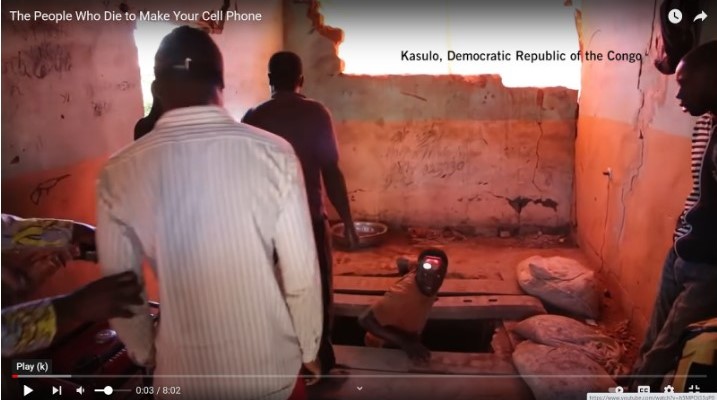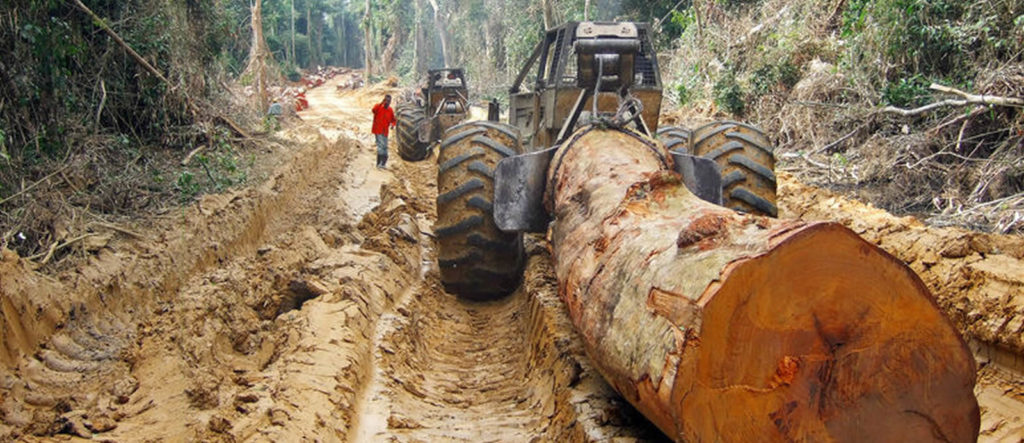Congo and the Climate Crisis
The Congo Basin sequesters more carbon than the Amazon or any other rainforest on the planet and is one of the most important places for biodiversity.
Why is this spot in the Congo attracting so much attention? This 6 minute video explains the ‘carbon bomb’ and need for global partnership with the local community.
As explained in the New York Times 2022 series on the Congo, within just the last few years, scientists have come to understand that one area alone of peatlands, which makes up 4% of the Congo rainforest, is storing the equivalent of 20 years of the United States’ carbon emissions from burning fossil fuels. The ‘carbon bomb’ is ticking with the threat facing the region from the oil and logging industries but can be stopped by embracing true climate justice.
For centuries now, Congo has endured environmental racism. The infrastructure of Congo has been intentionally designed for mass extraction since colonial rule began in the 1800s, leaving the majority of the Congolese people without access to their own land nor the ability to alter or end the extractive processes which governments and corporations profit from. This very design is why one of the most mineral-rich countries in the world has one of the highest poverty rates on the planet.
Friends of the Congo, alongside our frontline Congolese partners, are organizing to demand that the communities most directly impacted by the destruction and who have the local knowledge are not only in the conversations about the climate crisis but receive the financial resources and decision-making power their solutions require.
With the recent discovery of peatlands in the Congo Basin and what the Washington Post describes as The Race to Defuse Congo’s Carbon Bomb, the global community has a powerful opportunity to collectively dismantle the oppressive and extractive systems. With such a known ‘carbon time bomb’ threatening the entire world, there is tremendous potential to model what is possible when frontline communities are centered and financially resourced to stop industries and governments from logging, driling or burning the forest for mass agrobusiness.

Minerals, Child Labor, Mass Displacement and Massacres
Congo has a majority of essential minerals that the world relies upon daily. Cobalt, gold, copper and coltan, which fuels batteries for our cell phones, electric vehicles, and wind turbines are only a few minerals making Congo central to global desires. Over the years, attention has been drawn to the extreme exploitation in these mines, including the use of child miners, and the deadly pollution impacting the communities yet, still, atrocities continue.
Friends of the Congo partners with families as they seek accountability from Apple, Google, Dell, Microsoft, and Tesla in their lawsuit about the death of their children in cobalt mines. Stakeholders in extractive industries compete to control mineral-rich regions which often results in mass displacement of communities, extreme violence, and death. While usually the violence in eastern Congo is attributed as ethnic conflicts, as expressed in articles such as this one, “People are dying; not because they are of one ethnicity or another, but because they share the same land with minerals.” Learn more here about the horrors being committed as armed groups, governments, and companies seek to ensure their access to minerals, oil and timber throughout Congo.
Work for Climate Resiliency and Frontline Voices to Be Prioritized
According to the Donors of Color Network, “Top philanthropies are giving a tiny fraction — just 1.3% — of their U.S. climate dollars to the Black, Indigenous, and people of color-led environmental justice groups who are doing the most to fight climate change.” The drastic disparity in international climate funding is similar. Congo only contributes 0.09% of global carbon emissions, yet is the 12th most vulnerable country and the 5th least ready country – meaning that it is very vulnerable to, yet extremely ill-prepared to address climate change effects.
Friends of the Congo partners with frontline mining communities, forest protectors, and community-led regenerative agricultural organizations advocating for the necessity of Congolese communities to be deeply respected for their expertise, financially resourced, and prioritized in conversations at all levels about the climate crisis.
For nearly 20 years, Friends of the Congo has been part of sounding the alarm for the Congo Basin and screening films about the degradation of the land and communities of the rainforest such as this 8 min video by Greenpeace, yet unfortunately little has improved since the film was made in 2007.
Please contact us if you are interested in discussing ways to support or elevate the work of our frontline partners.

